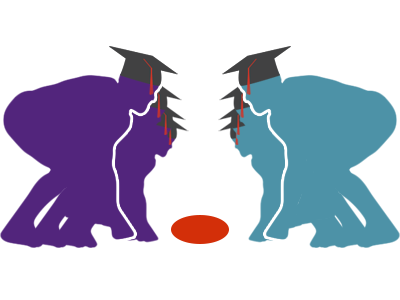 I love college sports.
I love college sports.
I love the energy, the passion, and the live-or-die association from the fans. I love the team oriented approach, the strategies, and the varieties of styles. I love the rivalries, the traditions, and the idea that these athletes are just students like us doing what they love.
Actually, I just came back from Tobacco Roadhouse Sports Bar and concluded a full day of college football, and it was nothing short of glorious (minus the devastating Duke loss).

